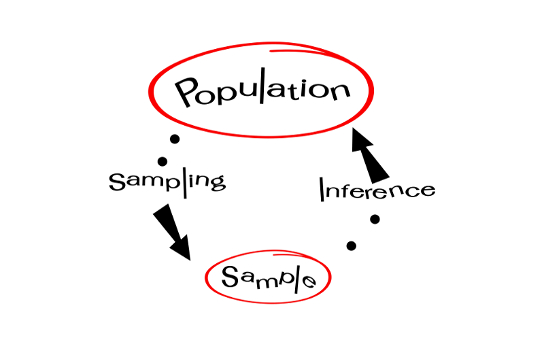In quantitative research, it is all about numerical data and running some type of statistical analysis. Your research question guides your research and your choice of methodology, so you need to make sure you get this step right early. If you are uncertain about the differences between quantitative and qualitative research and research questions, you can first read the posts Choosing between Qualitative and Quantitative Approaches, and Qualitative vs Quantitative Research Questions.
What is a quantitative research question?
A research question helps us define what we hope to learn when we conduct our study. It establishes which part of the (previously identified) problem our study will try to solve for the reader. A quantitative research question is usually followed by a hypothesis — this is a prediction of what we think our study will find; a statement that answers the initial speculative research question.
In quantitative research, you usually work with at least two variables. It is important that one of those variables is an independent variable (IV). You are often drawing your conclusions by manipulating the independent variable and observing the effects on the dependent variable (DV).
Types of quantitative research questions
To summarize what we have already learned from our previous posts, there are three types of quantitative research questions. They use a particular (simplified) formula:
- What is the relationship between X & Y?
Here, you are asking if two variables are correlated, and whether they are correlated negatively or positively. The answer often leads to other questions — questions which need to be the scope of a new study; a quantitative or a qualitative study based on the questions that are unearthed.
Example: What is the relationship between years on the job and a sense of loyalty to the company?
If this study shows that there is a positive correlation, we might want to ask an additional question that will explain the reasons for this association (e.g. trust develops over time, employees feel supported over time, so they reciprocate, etc.). But remember, any new question(s) that arise should be undertaken separately from your first study.
- Is there a significant difference between X & Y?
This question is often asked when we know we are going to have two comparable groups and we want to see if there will be a significant difference between these two groups.
Example: Is there a significant difference in reading scores between children who read five books a month and children who read two books a month?
- To what extent can X predict Y?
When we know that two variables have a relationship, we want to see if we can predict one from the other. These type of studies are usually not undertaken by newbies, as they can be easily challenged (i.e. it is difficult to claim with certainty that one thing alone can predict another).
Example: To what extent can a certain diet predict the onset of a stroke
What makes a good quantitative research question?
For general guidelines about how to formulate a great research question, you can take a look at our post here. Specifically, for quantitative research questions, you can follow these basic steps:
- Choose the type of question you want to create (see examples above).
- Identify your dependent and independent variables from the data groups you are interested in.
- Select the structure of the question; for example, sometimes the dependent variable will come first, and in other use cases it will go last.
- Write your question down and get feedback about its focus and clarity from fellow students and your advisors.
What’s next?
Your type of research question will determine the way you collect your quantitative data and also the statistical analysis that will follow. Therefore, how you ask your question will influence your subsequent data analysis. For instance, if you want to know if there is a significant difference between two variables, the t-test would be one possible statistical method. On the other hand, if you are looking at predictions, linear regression or multiple regression would be amongst your choices. A well-designed research question will set your study up for future success.
